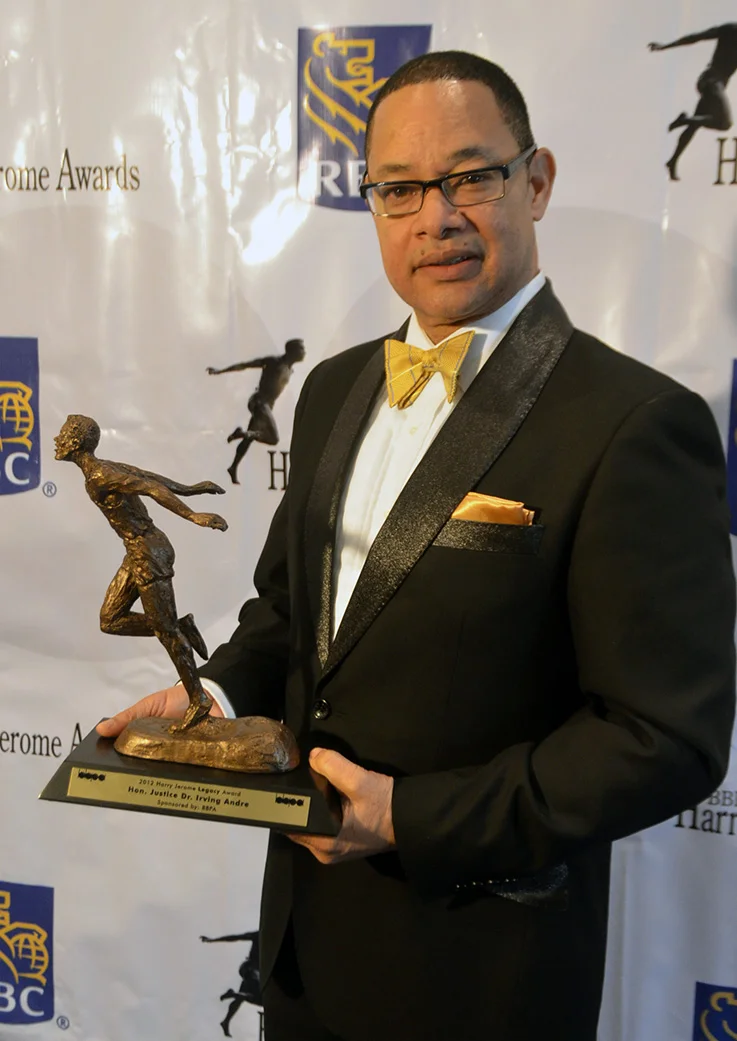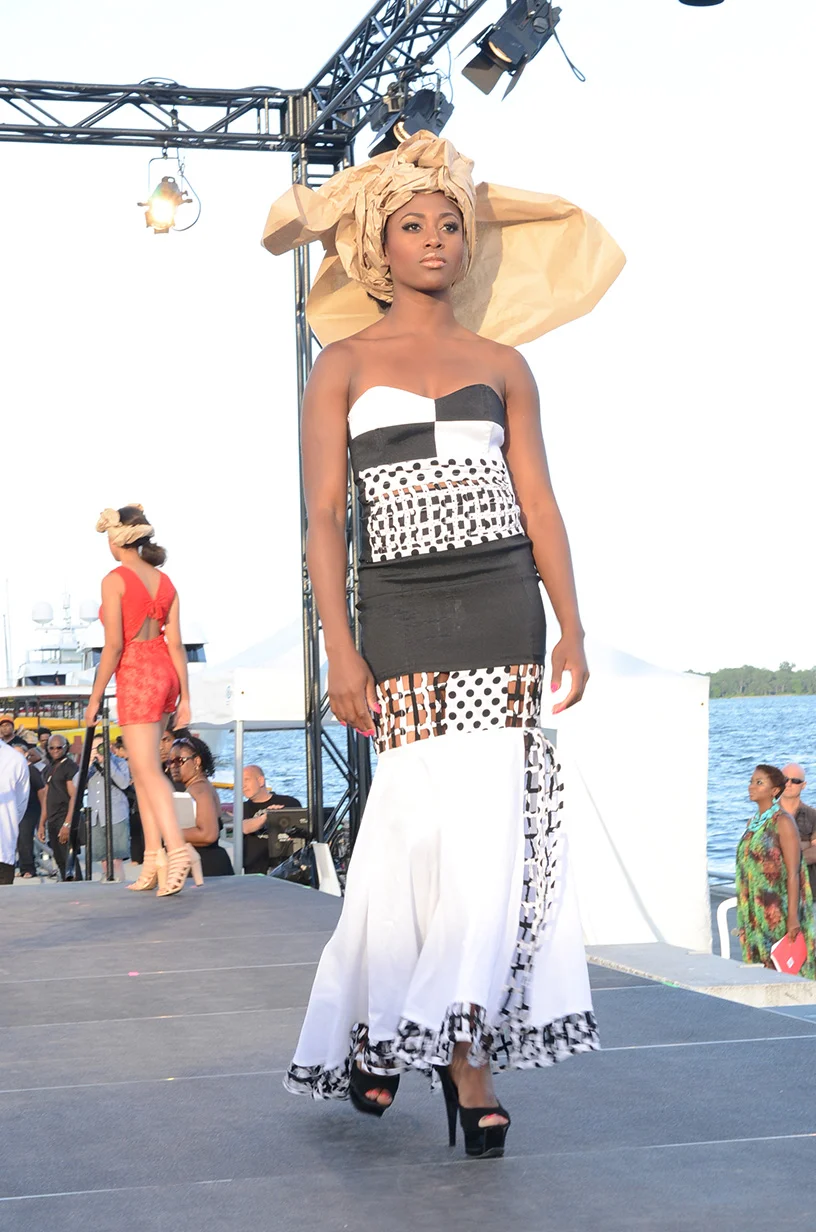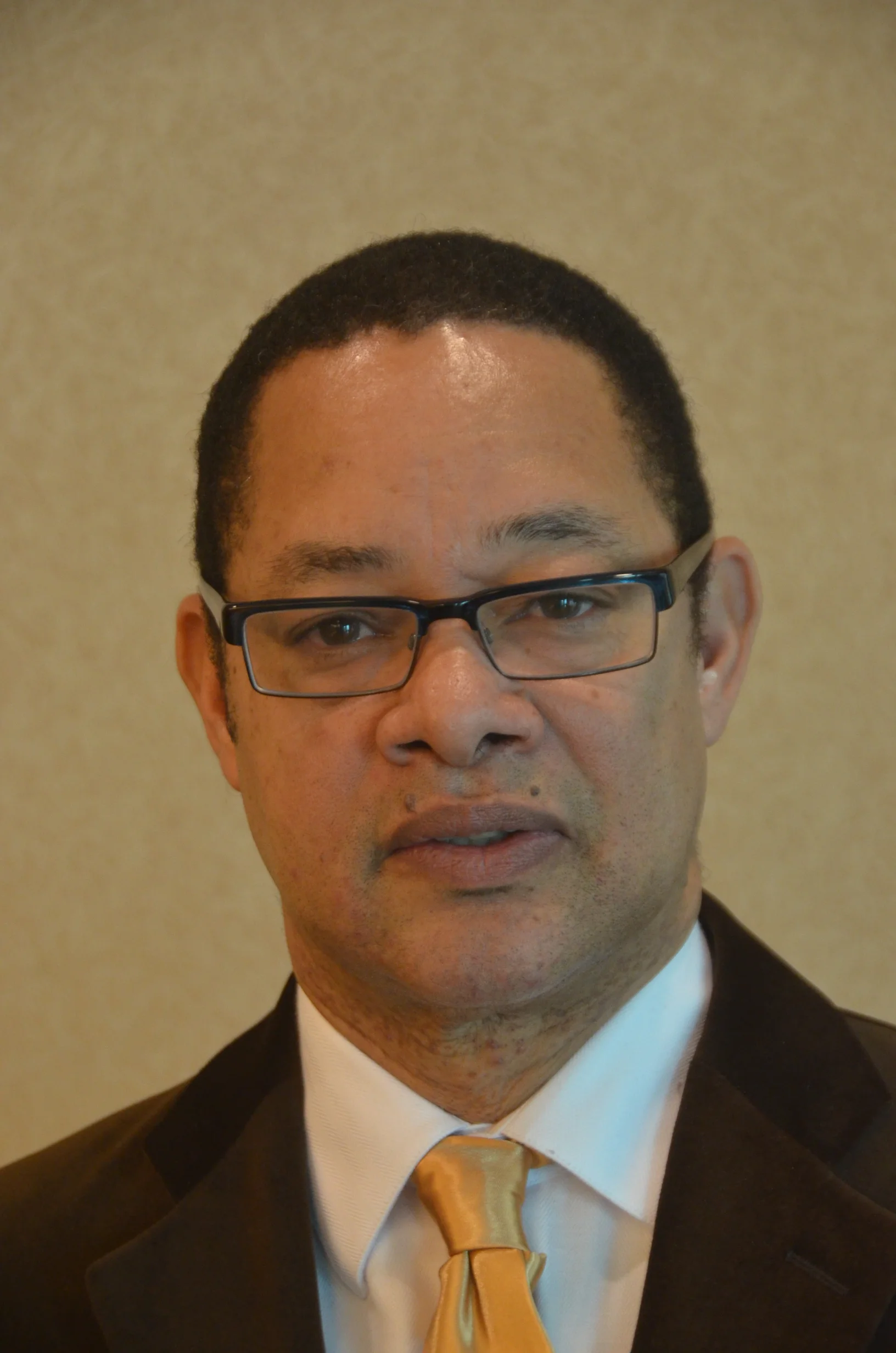Book chronicles Dominican cricket in the 20th century
Choosing higher education over a cricket career, Superior Court judge Dr. Irving Andre took up a United States Agency for International Development (USAID) scholarship offer in 1978 to pursue geography studies at the University of the West Indies (UWI) Mona campus in Jamaica a year after he was selected for national trials.
Nearly four decades later, Dr. Andre – an excellent opening batsman in school cricket – utilized his unquenchable penchant for research and storytelling to chronicle, A Century of Dominican Cricket, which was released a few months ago.
He attended the Dominica Grammar School launched in 1893 to train eligible students for colonial service on the island. The school also produced several outstanding cricketers who went on to play for Dominica, the Windward and Combined Islands.
“I grew up in Portsmouth and cricket in my formative years was a huge social and sporting event,” said Andre. “While at the Grammar School, which was next to the Botanical Gardens (it was the island’s main cricket ground up until 1971 prior to Windsor Park), the principal gave the students time off to go to the cricket ground to cheer on Lockhart Sebastian when he made his Dominica debut.”
Just 15 years old at the time, Sebastian – an opening batsman – went on to play 92 first-class contests.
Noting that the game was a bastion of colonial and colour privilege in the early 20th century, Andre revealed that a few local publicans, including fast bowler Merrill Anthony, possessed amazing talent that allowed him to rise to the top of the sport.
Anthony was born on May 28, 1904.
“He came from humble beginnings and was a tinsmith,” said Andre, who moved to Dominica with his parents at age three from Curacao. “Because of his trade, he developed significant musculature and emerged as an outstanding fast bowler by bowling to members of the colonial elite.”
Anthony broke into the Dominica team in 1922 and played cricket in Halifax two years later while working as a steward on a Royal Mail boat. One of the quickest bowlers in the Caribbean at the time, he led Dominica to its first Hesketh Bell (the name of a colonial governor who put up a trophy in 1914 to be contested initially by Dominica, Antigua, St. Kitts and Montserrat) championship in 1929 and was invited a year later to represent British Guiana (now Guyana) against the touring Marylebone Cricket Club (MCC). He also toured New York with a West Indies team later that year that won 14 of 21 matches.
Anthony was forced to retire in 1937 because of a nagging knee injury.
“At the twilight of his career, Merrill Anthony had reached the pinnacle of sporting success in Dominica,” Andre writes in the book. “He represented the hopes and aspirations of all young sportsmen in Dominica. His best cricket days were over, but he still commanded tremendous respect on the cricket field. Socially, he had taken a number of steps to achieve middle-class respectability in the relatively inflexible society in Roseau.”
A year after leaving the sport, Anthony was implicated as a ring leader in carnival violence.
“The cruel irony is that a number of persons who were implicated in the violence were well-to-do members of Dominica’s national cricket team, but the only member who was prosecuted was Anthony,” said Andre. “He was found guilty by a jury that was not his peers. To be eligible to be a juror at that time, you had to have a certain amount of property and status.”
Sentenced to two years in prison, he died in 1946 after a short illness.
Andre said cricket provided players like Anthony and other Dominicans who were born in poverty an opportunity to excel and be recognized.
“When you played for Dominica in the 1940s and 50s, you were regarded with great respect,” he said. “You also got a decent job by contemporary standards in the colonial civil service. Cricket was not just a game. It was a means of upward social mobility for those who came from humble beginnings.”
Several of these players were highly skilled and talented. However, they were not chosen for West Indies duty by selectors who favoured cricketers from the larger Caribbean countries – Jamaica, Guyana, Trinidad & Tobago and Barbados.
Vincentian Alfie Roberts, who died in Montreal in 1996 where he resided, was the first player from the Windward & Leeward Islands to crack the West Indies’ cricket team in 1956.
Many, however, felt that all-rounder Augustus (Val) Felix, who captained Dominica, the Windwards and the Combined Islands before leaving the Caribbean in 1958 for England where he spent six years before coming to the Greater Toronto Area, was worthy of West Indies consideration.
“The other more tragic story of not only West Indies cricket but West Indies politics is that of Alec Reid who was not only a brilliant wicketkeeper, but an exceptional soccer player,” said Andre, who is one of the few judges in Canada with a doctorate.
Invited to represent South Trinidad against the touring E.W. Swanton team at Guaracara Park in 1956, Reid claimed three catches, effected a stumping and scored 46 in the second innings, prompting Sir Learie Constantine to remark, “the only thing to prevent Reid going to England (the following year) is if a wicketkeeper should rise like a meteor in the heavens”.
Reid stood out for a West Indies XI against the touring English cricketers in a five-day match in April 1956 and, in the first of two trial games to select the West Indies team to tour England in 1957, took three catches and conceded just three byes in a total of 441. Yet, the selectors handed the wicket-keeping job to Guyanese batsman Rohan Kanhai – an occasional gloveman – and newcomer and Cambridge Blue, Gerry Alexander.
Felix said the only reason Reid was overlooked was because he was from a “small island”.
“I have never seen a wicketkeeper with the ability and dexterity of Reid,” Felix noted. “He stumped off fast bowlers…I didn’t see any wicketkeeper who ranked above him. He was certainly on top and no one came close.”
Frustrated and dejected, Reid migrated to England and was found dead in his Bradford home in May 1988.
An inquest revealed he had consumed ten fluid ounces of whiskey just prior to his death.
A Century of Dominican Cricket is the first sport’s book that Andre – a prolific writer – has authored. It will soon be available at A Different Booklist, 746 Bathurst St.
Other publications include A Passage to Anywhere and Distant Voices, and biographies of Dominica’s first minister, Franklin Baron; the island’s first premier and first surgeon, Edward LeBlanc and Dr. Desmond McIntyre, respectively; and the late Charles Maynard, who was Dominica’s ambassador to CARICOM and the Organization of Eastern Caribbean States.
He has also collaborated with close friend, U.S.-based attorney Gabriel Christian, on In Search of Eden, which is a social and political analysis of Dominica from 1967 to the present and For King & Country: The Service and Sacrifice of the British West Indian Military.
After graduating from UWI, Andre spent two years at Johns Hopkins University before joining his wife in the Greater Toronto Area. He worked as a claims adjuster with the Workers Compensation Board and delivered newspapers and flyers on weekends prior to enrolling in Osgoode Law School in 1985. A year later, he was accepted into the night court prosecutor’s program that allowed him to prosecute highway traffic infractions.
Successfully completing law school in 1988 and being called to the Bar two years later, Andre served as an assistant crown attorney prior to entering private practice and being appointed a judge in 2002. He returned to the classroom to obtain his Master’s and PhD and, three years ago, was appointed to the Superior Court of Justice.






